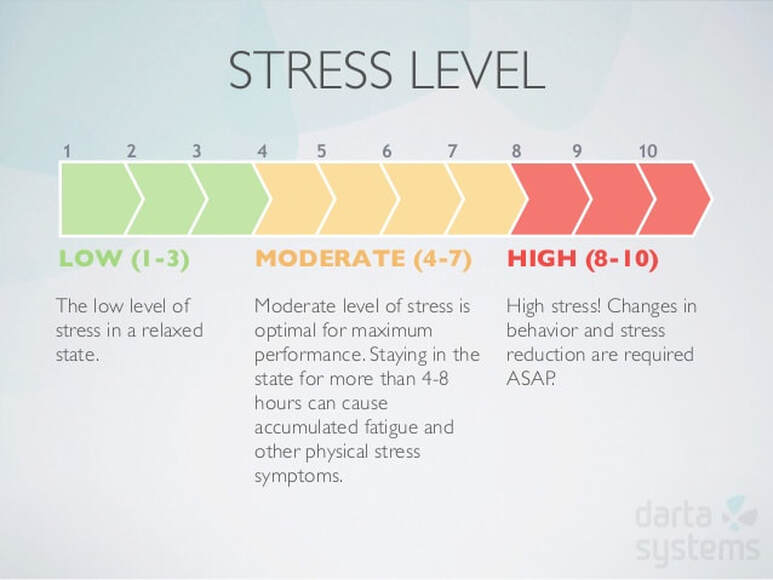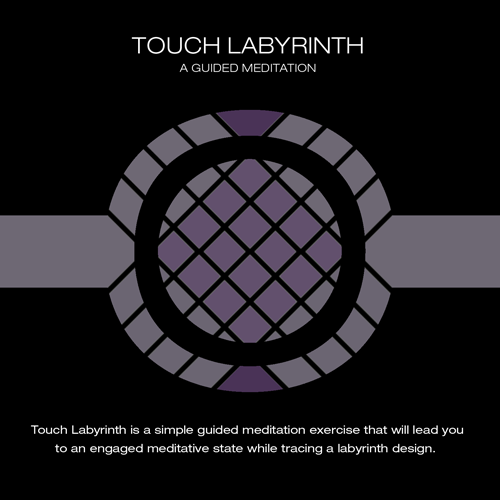 Takeaways: • Self-assessment techniques can be as effective as clinical measures for stress • Regular stress awareness can lead to better physical and mental health • Developing stress coping skills is crucial for managing stress effectively Most online stress measurement tools use a "life-event" method to determine your stress levels. They consider major events like divorce, job loss, or illness as indicators of high stress. However, this approach doesn't account for daily activities and how we react to them. Smaller but significant stressors, like a difficult boss or challenging relationships, can build up over time. A better way to assess stress is similar to how we measure exercise intensity. The Rating of Perceived Exertion (RPE) scale lets you estimate how hard you're working out without special equipment. You rate your effort from 6 (no exertion) to 20 (very intense). This method is often as accurate as using heart rate monitors. Dr. Sheldon Cohen of Carnegie Mellon University developed a similar technique for stress called the Perceived Stress Scale (PSS). It asks you to estimate your stress based on uncertainty, lack of control, and overload in various areas of your life. You can find online tests based on this method to self-assess your stress levels. I prefer a printed version of this test. It takes just a few minutes to complete the list. https://www.das.nh.gov/wellness/Docs%5CPercieved%20Stress%20Scale.pdf (If this link does not work – use keyword Cohen PSS in your favorite search engine) I like the online tool for Cohen PSS - by Kresser Institute because it does not require you to provide an email address. You can share your email if you want a copy of the test. I just use the copy and paste option. kresserinstitute.com/tools/pss/ The importance of stress awareness cannot be overstated. Research has shown that individuals with higher perceived stress, as measured by the PSS, often face more significant health challenges. For example, higher PSS scores have been associated with:
These findings highlight why monitoring your stress levels is crucial for maintaining good health. By recognizing our stress levels, we can take steps to reduce them and potentially avoid these negative health outcomes. To effectively manage stress, it's important to develop coping skills. There are two broad ways to deal with stress - directly and indirectly. Direct stress-coping skills address the underlying cause of stress, such as time management, organization, assertiveness, and asking for help. Indirect stress-coping skills help you feel better despite your stress, like regular exercise, spending time in nature, engaging in social activities, and taking time to relax every day. Building these stress management skills takes effort and time. A lot of stress management has to do with fundamental life habits - sleep, diet, and exercise, as well as engaging in your community and taking time to do the things you enjoy. Action Steps:
By focusing on stress awareness and developing effective coping strategies, we can take control of our mental and physical health. Remember, understanding your stress is the first step towards managing it effectively. We'd love to hear about your own methods for assessing and managing stress levels! If you're interested in one-on-one coaching (remote or face-to-face) on using your smartwatch to monitor stress levels or developing personalized stress management strategies, please reach out using the registration form on our workshop page. Your experiences and insights can help you and others on their journey to better stress management and overall well-being. Please remember these tests and screenings are not a substitute for a clinical evaluation. Contact a health professional for more information and a complete exam.
0 Comments
Recipe for Self-Compassion Want to feel love, joy and peace? Acknowledge your pain and suffering and cultivate self-warmth, self-care and an empowering attitude. Ingredients:½ Cup - Gratitude 1 Cup - Self-Kindness 1 Cup -Connection 1 Cup -Mindfulness Directions:Measure 1 cup of self-kindness. Mix in 1 cup of mindfulness to be open. Observe your feelings and thoughts without judgement. Sift in 1 generous cup connection of your loved ones and journaling to remind that you are not alone! Top off the recipe with a touch of gratitude. Let rise until you are bubbling with love and joy. Serve generous portions to your hungry guests; chronic pain, failure or suffering until they feel full of love, joy and peace! © Sudesh Kannan 2019 www.meditation-magic.com ============================================================== Do you want to transform your relationship with yourself and others around you? Cultivate self-compassion as that generates good self worth – a key component of good relationships! Be sure to check out the quiz link below. Kristen Neff, an Associate Professor in Human Development and Culture (Educational Psychology Department) at University of Texas at Austin, has written a very easy-to-understand tome on Self-Compassion. She shows that developing self-compassion is a healthier way of improving our relation to ourselves as compared to self esteem. Self-esteem refers to our sense of self-worth, perceived value, or how much we like ourselves. Low self-esteem often correlates with depression and lack of motivation. On the other hand, high self-esteem may result in narcissistic or self-absorbed behavior. In contrast, self-compassion is based on acknowledging our challenges and problems with kindness and objectivity. We don’t judge ourselves but accept ourselves. Practicing self esteem helps maintain a better emotional balance, it leads to less depression, more optimism and more life satisfaction. Kristen Neff indicates that there are three components of self-compassion. Self Kindness – As opposed to self-judgement, self-kindness refers to the act of being kind to ourselves and our suffering. Very often we beat ourselves instead of being and warm and supportive during our tough times. Humanity – as opposed to a sense of isolation. We often have to understand that imperfection is part of human experience. We are not alone in our suffering. While we may feel isolated, we have to realize that other people go through hard times too. Mindfulness – as opposed to over-identification with the current challenge. It is easy for us to over-react or suppress negative feelings or emotions. Part of mindfulness to embrace the pain and suffering we are going through. Check below to see how you can measure and evaluate your level of compassion. In the relationship seminar, we will discuss various ways of increasing your self compassion through meditation, mindful activities such as journaling and role-playing. Check out my blog article Embrace Your Inner “Room-mate” for Creativity and Love on ways you can address your inner critical voice. Reference
Here is a typical report on self-compassion - These scales are 1 to 5 with 2.5 being the average. The first three show components of your self-compassion (Self Kindness, Common Humanity and Mindfulness Self-Kindness: 2.20 Self-kindness - being warm and understanding toward ourselves when we suffer, fail, or feel inadequate, rather than ignoring our pain or flagellating ourselves with self-criticism Opposing component - Self-Judgment: 2.60 Common Humanity: 3.00 Common Humanity - recognizing that suffering and personal inadequacy is part of the shared human experience - something that we all go through rather than being something that happens to “me” alone. Opposing component - Isolation: 2.75 (Reverse score of Common Humanity) Mindfulness: 3.25 Mindfulness - a non-judgmental, open state of mind in which one observes thoughts and feelings as they are, without trying to suppress or deny them Opposing component - Over-Identification: 2.75 (Reverse score of Mindfulness) Overall score: 3.06 |
a guided finger meditationEngage your senses with soothing music, guided imagery and a labyrinth tracing activity which leverages the power of touch. Click the album cover to learn more. Categories
All
|

 RSS Feed
RSS Feed